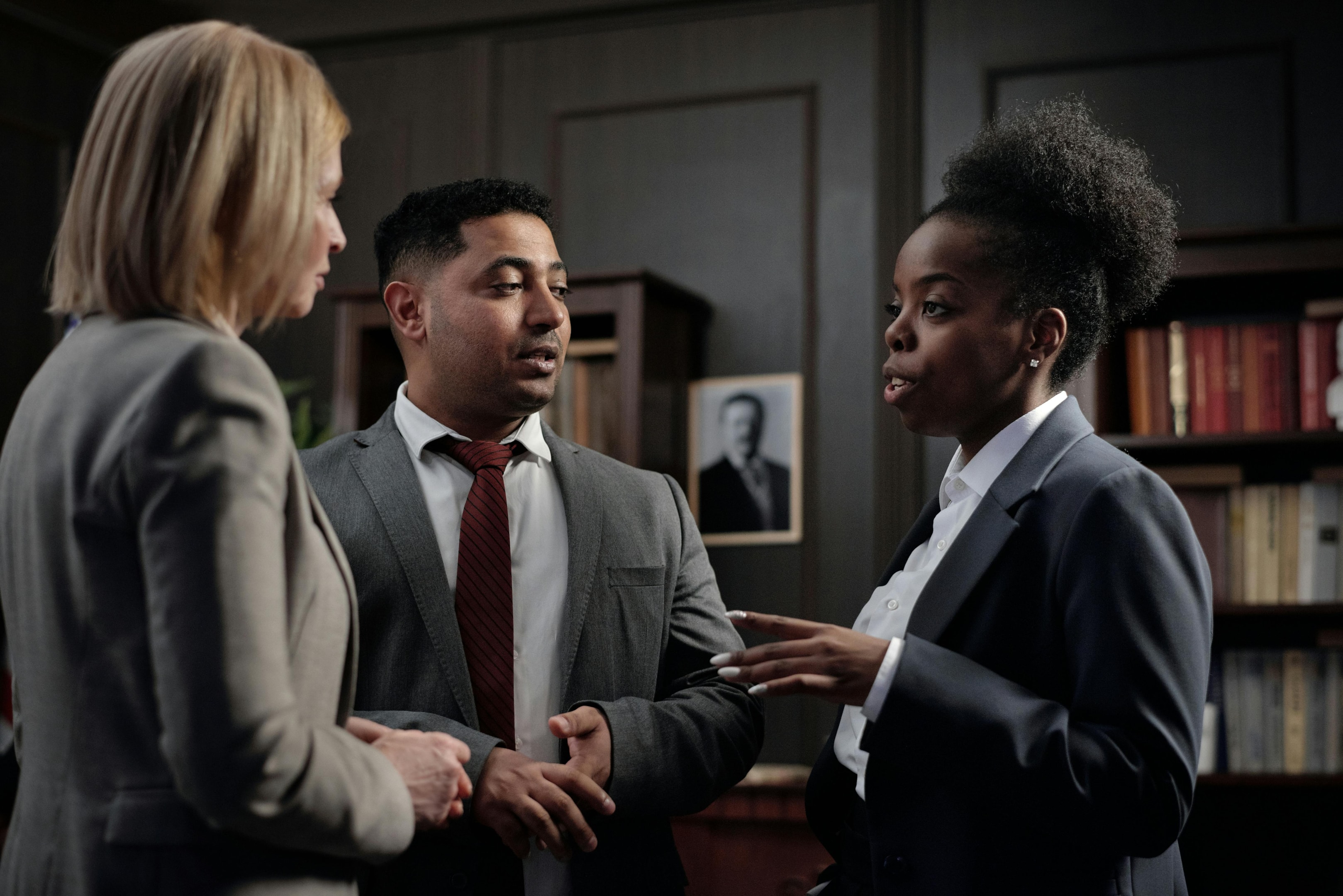Best Practices for How to Approach Probate Property Owners in Real Estate
Approaching probate property owners requires a careful strategy, due to the sensitive nature of the situation. These owners are handling estates of recently deceased loved ones. In this article, you'll learn respectful ways to contact probate property owners, research properties, and work with estate attorneys on how to approach probate property owners effectively.

Key Takeaways
Understanding the probate process is crucial for effectively engaging with property owners and navigating estate complexities.
Building relationships with probate attorneys enhances access to opportunities and legal insights that facilitate successful property transactions.
Employing empathy and respect when reaching out to probate property owners fosters trust and helps streamline the buying process.
Understanding Probate Property Owners
The probate process manages the distribution of a deceased person's assets, ensuring the will's instructions are followed and debts are settled. This helps clarify property ownership and manage estate debts. Probate property owners often include a personal representative appointed by the probate court, typically from among close family members like spouses and children, who are responsible for settling the deceased's estate and distributing the remaining assets. The probate process typically lasts six months to a year, depending on the estate's complexity and the presence of a will. Navigating these challenges requires a thorough understanding of probate law and its impact on property transactions. Grasping these fundamentals prepares you to engage with probate property owners and assist them during a challenging time, laying the groundwork for researching and acquiring probate properties. To make sure you understand the basics of probate and how it interacts with real estate, read Probate Leads- What Are They and How To Use Them.
Researching Probate Properties
Identifying probate properties is a strategic first step in real estate investment. Monitoring public notices in local newspapers and using online probate databases can help locate potential investment opportunities, offering detailed information about properties in probate. Online tools like USLeadList streamline research by providing comprehensive lists of probate leads, including contact details and property information. Networking with estate attorneys can yield referrals, helping you find properties before they hit the market, giving you a competitive edge.
Probate properties are often sold below market value, making them attractive to buyers. Mastering these research strategies equips you to identify and evaluate probate sales effectively, paving the way for successful transactions. By leveraging these resources and building connections with legal professionals, you can navigate the complexities of probate real estate with confidence, ensuring that you are well-positioned to seize valuable opportunities in the market.

Building Relationships with Estate Attorneys
Building relationships with probate attorneys is crucial in real estate as they offer early notifications about opportunities before they hit the market. Their insights into estate laws affecting property transactions ensure effective navigation of the legal landscape. By maintaining professional relationships with these attorneys, you gain vital legal advice tailored to your investments. Networking with probate attorneys enhances your understanding of the probate process and its impact on property ownership, making transactions more efficient and less risky.
Connecting with estate attorneys not only streamlines the acquisition of probate properties but also builds a network of trusted professionals for ongoing support and advice. This ensures your transactions are handled with care and legality. By leveraging their expertise, you can navigate complex legal procedures with confidence, ensuring that your real estate dealings are both successful and compliant with all relevant laws and regulations. For help finding reliable probate attorneys in your area, read Local Probate Attorneys: A Goldmine for Real Estate Professionals.
Reaching Out Respectfully
Empathy and sensitivity are crucial when contacting probate property owners, who may be dealing with the loss of a loved one. A considerate and compassionate approach acknowledges their situation, setting a positive tone and fostering trust.
Respectful and fair offers are important when dealing with probate properties. Ensure your offers are reasonable and reflect an understanding of the family's circumstances, enhancing your chances of success and demonstrating integrity and professionalism. Reaching out with empathy and respect builds a foundation of trust and goodwill, essential for navigating probate real estate. A crucial part of reaching out to the beneficiaries involves providing some kind of assistance to them given their situation. To learn more about this, read How Probate Investors Can Offer Value To Surviving Spouses.
Offering Assistance in the Probate Process
Assisting in the probate process can alleviate property owners' stress and smooth transactions. A probate attorney can guide the sale or transfer of real estate, ensuring legal requirements are met and financial obligations are managed correctly.
Regular meetings with property owners and their legal representatives facilitate open discussions and address concerns during the probate process. Proactive communication prevents misunderstandings and ensures all parties are aligned.
Legal guidance simplifies the probate process, making it more manageable for property owners during the legal process and the court supervised process. Providing support and expertise helps the family focus on emotional healing while ensuring the estate's legal and financial aspects are efficiently handled.

Evaluating Probate Properties
Evaluating probate properties involves assessing their value and potential title issues, which is crucial for rewarding outcomes. Understanding the market value is essential, and estimates from local real estate agents and valuations from licensed appraisers provide clear and reliable property values. Common issues affecting probate property value include repairs, updates, liens, and encumbrances. It is necessary to keep budget at the top mind when evaluating these properties. To read more about setting a successful budget for your investments, read Essential Strategies for Budgeting for Real Estate Investing Success.
Thorough inspections and understanding the title history are vital to assess the property's potential and condition, revealing any issues that need addressing. Additionally, probate court reports, including court-appointed appraisers' documents, are crucial for making informed offers and effective negotiations. A comprehensive evaluation ensures that your investments are sound and profitable, allowing you to navigate the complexities of probate real estate with confidence.
Negotiating Offers
Crafting an offer on a probate property requires meticulous attention to various elements, such as the purchase price, contingencies, and proposed closing date. It's essential to maintain a respectful and professional demeanor, keeping in mind the estate's priorities during negotiations. Effective negotiation hinges on understanding both the buyer's and the estate's needs to reach a mutually beneficial agreement. Clear communication about the property's history and the probate process helps establish trust, while offering potential incentives, like covering closing costs, can make your offer more appealing.
Being prepared for buyer objections is crucial to strengthening your negotiation position, ensuring that concerns are addressed promptly and effectively. A skilled negotiator can help achieve the best price, securing favorable deals while maintaining positive relationships with the estate. By approaching negotiations with empathy and strategic insight, you can navigate the complexities of probate property transactions successfully, ensuring a win-win outcome for all parties involved. To enhance your negotiation skills in order to make yourself the most profit possible, read Negotiation Tactics for Real Estate Investors: Maximize Profits & Close More Deals.
Closing the Deal
The closing procedure for probate properties involves the estate representative or probate court overseeing the transfer of ownership, often encountering common obstacles such as delays in court approvals and title issues. These must be addressed promptly to ensure a smooth transaction. After closing, buyers must secure possession of the property, addressing any occupant situations and resolving outstanding issues related to repairs, taxes, or liens. This ensures a seamless transition of property ownership. Understanding and effectively navigating the closing process helps mitigate potential challenges, ensuring successful deal finalization. This not only protects your investment but also fosters trust with the estate and its representatives, making the transition smoother for all parties involved. For advice on the final steps of closing your probate deals, read Strategies for Closing Probate Real Estate Transactions.

Common Challenges in Probate Real Estate
Handling probate properties is complex due to legal disputes and the intricate nature of estate's complexity while managing assets. Clear communication with all interested parties prevents misunderstandings and disputes. Even with clear communication, family disagreements over asset distribution or will validity can lead to litigation and delays.
Typical title issues with probate properties can include inaccuracies in public records, unresolved liens or mortgages, and disputes over property boundaries. Conducting a title search before closing is vital to identify potential issues. Resolving these may require correcting records, negotiating liens, or obtaining legal advice.
Outstanding debts must be settled before the deceased's assets can be distributed in probate assets. If debts exceed assets, seek legal guidance to navigate insolvency issues. Proactively addressing these challenges, including paying debts and creditor claims, ensures a smoother probate real estate transaction.
Legal Considerations
State laws govern probate and estate planning, covering critical aspects such as a valid will, living wills, powers of attorney, and estate administration. Familiarizing yourself with these frameworks is essential for effectively navigating probate proceedings. Estate taxes and associated tax implications during probate can significantly impact the inheritance beneficiaries receive from the decedent's estate. It can be beneficial to work with a probate attorney, especially if you are newer to the world of probate investing, to ensure that all laws and regulations are being properly followed.
Additionally, obtaining title insurance for probate properties is a wise precaution to protect against unforeseen title issues. These legal considerations are crucial for ensuring you are well-prepared to handle probate real estate transactions with confidence. By understanding the intricacies of state laws and tax implications, you can navigate the complexities of probate with greater ease, ensuring a smoother transition and safeguarding your investments against potential legal challenges.
Benefits of Working with a Probate Attorney
Working with a probate attorney ensures the probate process is conducted correctly and efficiently, offering invaluable guidance through the complexities of state laws and challenges. Their expertise in estate planning documents, probate laws, and legal procedures helps protect your interests and avoid unnecessary court intervention, providing peace of mind regarding potential legal issues. Effective estate planning and understanding probate requirements significantly influence the smooth transfer of assets to beneficiaries. By engaging a reputable probate attorney early on, you ensure your transactions are managed with care and expertise, effectively navigating any legal hurdles that may arise and ensuring a seamless asset transfer process.

Conclusion: Approaching Probate Property Owners
Navigating the complexities of probate real estate requires a blend of empathy, respect, and strategic knowledge. Understanding probate property owners and researching potential properties are foundational steps for successful transactions. Building relationships with estate attorneys and reaching out respectfully to property owners foster trust and cooperation. Offering assistance during the probate process, evaluating properties thoroughly, and negotiating offers effectively are crucial for securing favorable deals.
Closing the deal requires attention to detail and addressing any outstanding issues promptly. Being aware of common challenges and legal considerations ensures you are well-prepared to handle any obstacles that arise. By following these best practices and working closely with a probate attorney, you can confidently and professionally navigate probate real estate transactions, unlocking the potential of probate properties while extending compassion to those involved.